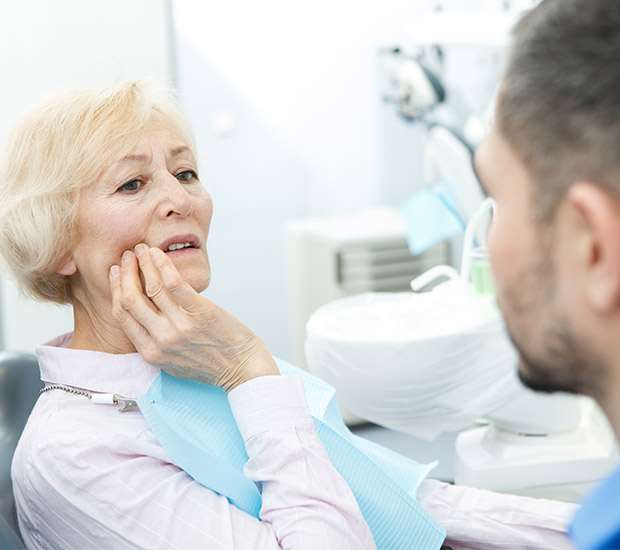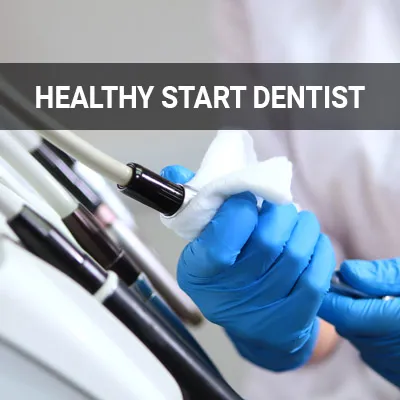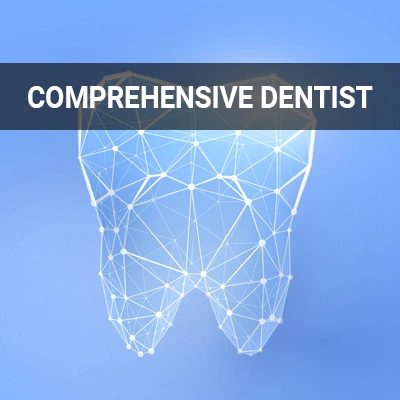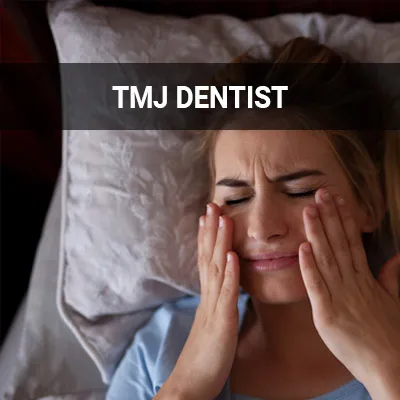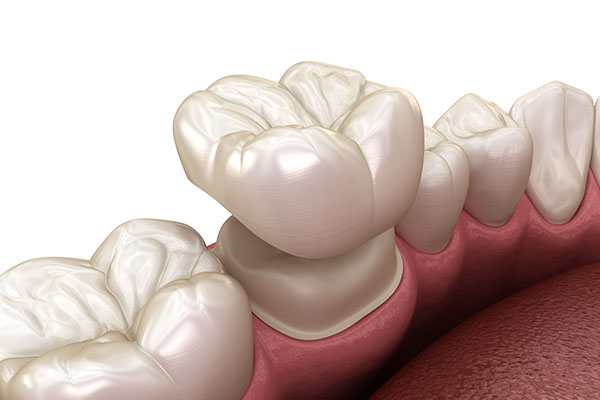Seeing a Complete Health Dentist for TMJ Miami, FL
Patients looking for TMJ treatment should consider complete health dentistry, as it focuses on how the patient's overall health may affect and be affected by their condition. At best, TMJ is an annoyance. At worst, it is excruciatingly inescapable. A TMJ dentist knows how to address the root cause of this condition rather than just temporarily alleviating its symptoms.
Primary care dental is available at South Florida Dentistry in Miami and the surrounding area. A complete health dentist can help reduce your TMJ woes while improving your overall health. Call us today at (305) 203-4097 to schedule an appointment or to learn more about our services.
Why Complete Health Dentistry
Complete health dentists take a more comprehensive approach to dentistry. Instead of treating a patient's isolated symptoms, they consider all aspects of their health and how they may affect each other. As such, complete health dentists dedicate themselves to find the root cause of their patient's conditions. This allows them to treat their overall health through their oral health. It also makes it possible to identify signs of other, broader health conditions.
This is especially important when dealing with TMJ since it is linked with so many other systemic conditions. Studies have shown that TMJ patients are more sensitive to pain. They also present body pain areas more frequently than their counterparts. Experts hypothesize that this implies a generalized dysfunction of the patient's nociceptive system, the sensory nervous system's way of encoding harmful stimuli. Thus, those with TMJ may have high rates of other painful conditions and systemic diseases occuring at the same time.
“…those with TMJ may have high comorbidity rates of other painful conditions and systemic diseases.”
Understanding TMJ
Temporomandibular joint disorders (also known as TMJ, TMJ disorders, TMJD, or TMD) occur when an individual's temporomandibular joint sustains damage or is otherwise malfunctions. Ideally, this joint should function like a sliding hinge that connects the jawbone to the skull. There is one temporomandibular joint on each side of the jaw. Individuals affected by TMJ experience pain in the jaw joint and the muscles controlling jaw movement.
It can be challenging to determine the exact cause of a patient's TMJ disorder, especially since there may be several different factors at play. These include but are not limited to arthritis, genetics, and jaw injury. Those with jaw pain are also likely to have bruxism, a condition in which one clenches or grinds their teeth. However, not everyone with bruxism has TMJ (or vice versa).
“Individuals affected by TMJ experience pain in the jaw joint and the muscles controlling jaw movement.”
Signs and Symptoms of TMJ
TMJ disorders are often associated with severe pain that affects one joint or both joints (remember, the jawbone has two joints connecting to the skull on either side of the face). TMJ more commonly affects women and usually presents in adults between the ages of 20 and 40 years. TMJ symptoms often overlap with other conditions but typically include:
- Feeling “tired” in the face
- Jaw locking in an open- or closed-mouth position
- Pain or tenderness in the face, jaw, neck, and shoulders
- Pain or tenderness around the ear (near the joint) when chewing or speaking
- Problems opening the mouth wide or chewing
- Swelling on the side of the face
Diagnosing TMJ usually requires a physical exam and the evaluation of a person's medical history to identify conditions potentially contributing to one's symptoms. A complete health dentist will examine the jaw, bite, and facial muscles, testing them for functionality, and may order full-face X-rays, MRIs, or CT scans to understand the severity of TMJ disorders.
“TMJ symptoms often overlap with other conditions.”
Check out what others are saying about our dental services on Yelp: Seeing a Complete Health Dentist for TMJ in Miami, FL
Other Health Issues Affected by TMJ
TMJ is associated with several other conditions, including arthritis, scoliosis, and periodontal disease. For example, some orofacial symptoms (pain, inflammation, functional limitations) associated with TMJ disorders may stem from arthritis. A restricted range of motion may be related to scoliosis as it causes asymmetries of the head, neck, and shoulder. Periodontal disease may result from TMJ as unilateral chewing from chronic periodontitis causes structural changes to the temporomandibular joint.
Concomitant health issues remain critical to recognize because they can influence the approach to treatment. A complete health dentist looks for underlying issues associated with TMJ as treating related conditions can improve TMJ symptoms. Taking into account a person's complete health profile helps primary care and dental providers coordinate a custom treatment plan tailored to improve overall health.
“A complete health dentist looks for underlying issues associated with TMJ as treating related conditions has the potential to improve TMJ symptoms.”
Questions Answered on This Page
Q. What can complete health dentistry do for my TMJ?
Q. What is TMJ?
Q. What are the signs and symptoms of TMJ?
Q. How is TMJ related to other health issues?
People Also Ask
Q. How can a dentist help with TMJ?
Q. What are some conditions that a complete health dentist can diagnose?
Q. Why is preventative care important? How can it save you money?
Q. What are the benefits of having a complete health dentist as a dental provider?
Q. What family members may need extra help with their oral hygiene?
Treating TMJ
TMJ symptoms sometimes go away without treatment. However, if symptoms persist, patients may need to seek medical treatment. A complete health dentist can identify the symptoms' root cause and devise a customized treatment plan tailor-made for the patient's unique and individual needs. If over-the-counter pain medication does not relieve a patient's discomfort, a dentist may prescribe more potent pain relievers and anti-inflammatories on an as-needed basis.
Oral appliances, such as splints or mouth guards, may also help, as those with jaw pain often benefit from wearing a soft or firm device over their teeth. Certain jaw exercises may assist in stretching and strengthening the jaw muscles. Physical therapy for jaw pain may include ultrasound, moist heat, and ice. Surgery may be necessary if these treatments are insufficient. Such procedures include arthrocentesis, TMJ arthroscopy, modified condylotomy, and open-joint surgery. Some patients also benefit from corticosteroid injections.
Frequently Asked Questions
Q. What is total health dentistry?
A. Total health dentistry is a more comprehensive approach to primary care dental services. A total health dentist has a deeper understanding of the oral-systemic link. Total or complete health dentistry considers a person's overall health and how it influences oral health and vice versa.
Q. What is TMJ?
A. TMJ is short for temporomandibular joint disorders (also called TMD or TMJD). TMJ disorders get characterized by jaw pain or dysfunction affecting the joints where your jawbone connects to your skull. TMJ may be due to stress, degenerative conditions, or injury to your jaw.
Signs of TMJ include:
Q. What health conditions get associated with TMJ?
A. TMJ disorders are commonly associated with other health conditions, including arthritis, scoliosis, and periodontal disease. Many patients report being especially sensitive to pain. For this reason, some experts believe TMJ may also be related to sensory nervous system disorders.
Q. How do you treat TMJ?
A. Since TMJ disorders are often related to other health problems, a complete health dentist or TMJ dentist needs to diagnose TMJ and evaluate any underlying conditions. Effectively treating TMJ usually requires also treating the underlying health issue. Treatments include pain relievers, anti-inflammatory medications, steroid injections, and physical therapy approaches to relieving pain and strengthening jaw muscles. Oral appliances may correct TMJ, and in severe cases, surgery may be indicated.
Q. What can someone do at home to improve their TMJ symptoms?
A. There are steps a person can take on their own to help lessen the symptoms of TMJ. These include sticking to soft foods, taking notice of bad habits such as teeth grinding, and properly exercising the jaw. Your complete health dentist can recommend the appropriate jaw exercises to help you relieve your TMJ symptoms.
Dental Terminology
Call Us Today
When choosing a primary dental care provider, you want to make sure that they can cover all the bases — including treating your TMJ. Our complete health dentist at South Florida Dentistry may be able to help. Call us today at 305-203-4097 to schedule an appointment or to learn more about our services.
Helpful Related Links
- American Dental Association (ADA). Glossary of Dental Clinical Terms. 2025
About our business, and website security
- South Florida Dentistry was established in 1997.
- We accept the following payment methods: American Express, Cash, Check, Discover, MasterCard, and Visa
- We serve patients from the following counties: Miami-Dade County
- We serve patients from the following cities: Miami, Doral, Hialeah, Fontainebleau, Hialeah Gardens, Sweetwater, Coral Gables, Kendall, South Miami, Miami Lakes, Miami Gardens, Medley, Westchester and Brickell
- Healthgrades. View Background Information and Reviews
- Norton Safe Web. View Details
- Trend Micro Site Safety Center. View Details
Back to top of Seeing a Complete Health Dentist for TMJ
